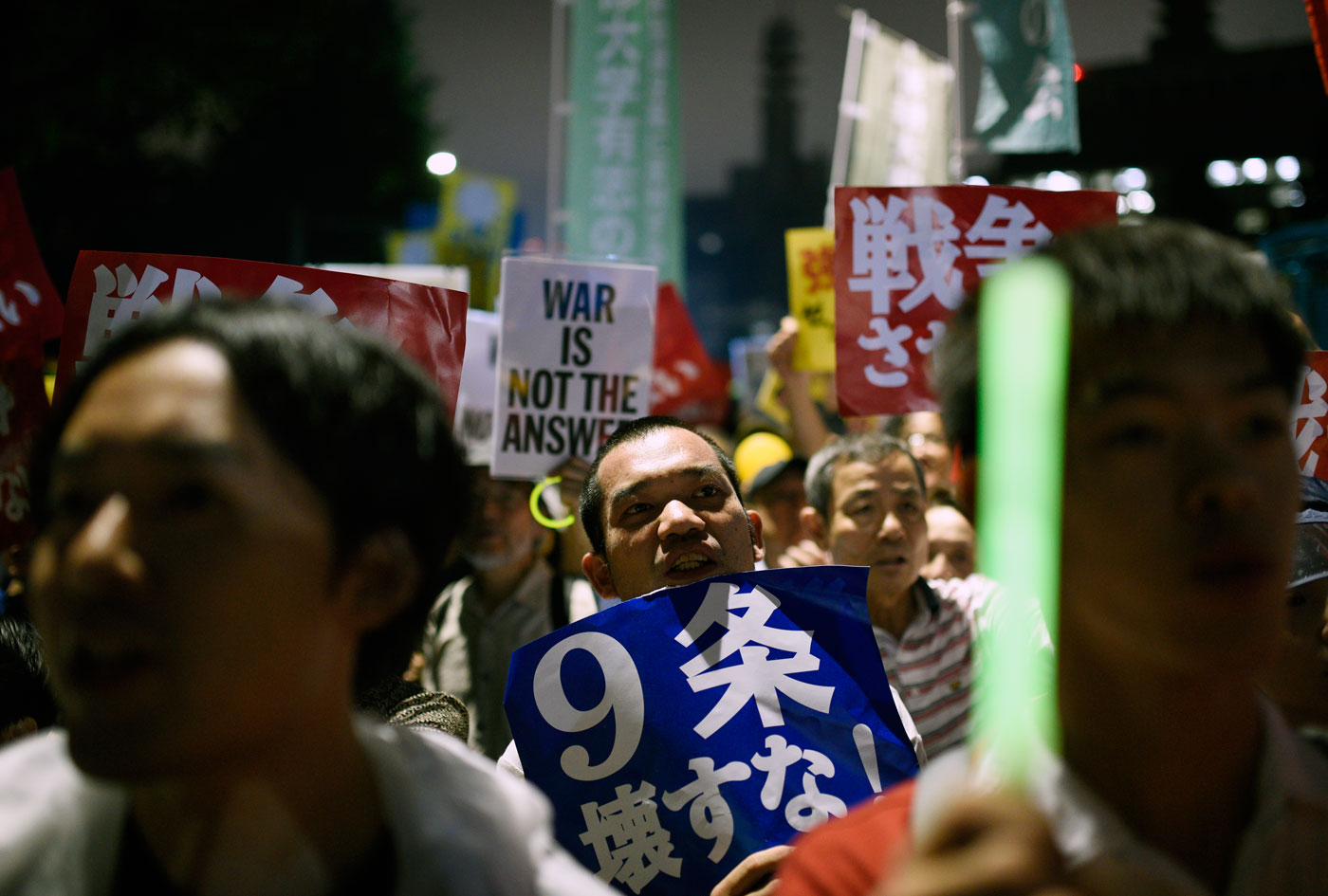
Dmitry Streltsov Doctor of History, Head of the Department of Oriental Studies of the MGIMO University, RIAC expert
It was recently announced in the media that Japan has adopted a new military doctrine, allowing the country to take part in military operations. It could result in a dramatic turn from Tokyo’s peaceful foreign policy and further aggravate tension in the already turbulent region. What is the essence of the new law? What comes next? How will this decision affect the relations between the US and Japan? Dmitry Streltsov, Doctor of History, Professor, Head of the Department of Oriental Studies in the MGIMO University and RIAC expert, shares his insight.
The matter at issue is not the military doctrine per se, but a package of 11 laws, which Japan’s upper chamber of Parliament voted into law on September 20, 2015. This legislation had been under discussion in the Japanese parliament for quite a long time, as almost the entire spring-summer parliamentary session was devoted to the debate on these controversial bills. Shinzo Abe’s Cabinet even had to extend the session of the upper house of Parliament for more than 100 days to shove the bills through the legislation and to satisfy public opinion.
The main problem that worries Japanese public is the issue of safeguards against the involvement of Japan against its will in an armed conflict, in which the United States is a participant.
In Japan, the protest sentiments against this legislative package are fairly strong. Most people do not support the policy of Shinzo Abe’s Cabinet. According to the latest NHK polls, about 40 percent of Japanese are opposed to it, about 19 percent support it, and 30 percent are undecided. This is due to the fact that the new legislation was adopted in a manner that is not quite democratic. The public has not received clear answers to many questions that were bound to arise, given the adoption of such controversial legislation.
So, the main problem that worries Japanese public is the issue of safeguards against the involvement of Japan against its will in an armed conflict, in which the United States is a participant. Under the new legislation, Japan, as an ally of the United States, will be able to render the USA militaries logistics support throughout the world beyond the immediate proximity of country. It creates a lot of risks, and the legislation fails to specify the country’s mode of conduct should they arise, namely what Japan should do, what the government can do within its scope and authority, etc. For example, how will the government act, if the Self Defense Forces’ (SDF) servicemen are taken prisoner or killed in the course of such operations, rendering support to the United States? This risk increases significantly, as Washington pursues a policy that does not perfectly suit the interests of Japan, and can well plunge into military gambles, as it did in Iraq in 2003. In Japan, the prevailing assessment of US policy is quite negative; it is feared that the country will become its hostage and will be forced to risk the lives of its citizens in the interests of America.on two major postulates. The first is a peaceful Constitution and non-maintaining the armed forces. The second is an alliance with the United States for the defense of Japan and for protecting the latter’s sovereignty. A certain balance between these two components has brought prosperity to Japan. The new legislation means a qualitative shift in policy in favor of Japan’s alliance with the US. The military component begins to dominate Japan’s policies in the field of national security. Of course, there are certain grounds for such a shift. They are prompted by a change in the military-strategic situation in the world and in East Asia, in particular, and by the emergence of new threats. However, there is a risk that this decision of Japan will be seen abroad as a departure from its peaceful status. This may compromise its international image and, accordingly, the country’s security. Until now, the international prestige of Japan was based on non-military means, namely various efforts to assist development, as well as Japan’s financial contribution to the work of international organizations. Japan has emphasized the pacifist nature of the state and its policies. This commanded the country’s respect from its partners, especially in Asia.
The decision of Shinzo Abe’s Cabinet to adopt this new legislation does not meet the aspirations of the Japanese people and creates an unfavorable international climate around Japan.
Now, the adoption of the new doctrine puts the positive historical baggage in jeopardy. Full-fledged participation of Japan in the regional arms race, in the creation of military alliances in the region, and in the world at large will put an end to the peaceful component of Japan’s foreign policy, and, eventually, will deal a blow at its national security. Accordingly, the decision of Shinzo Abe’s Cabinet to adopt this new legislation does not meet the aspirations of the Japanese people and creates an unfavorable international climate around Japan.
Interviewed by Maria Gurova, RIAC Website Editor.

 October 15, 2015
October 15, 2015  Опубликовано в
Опубликовано в